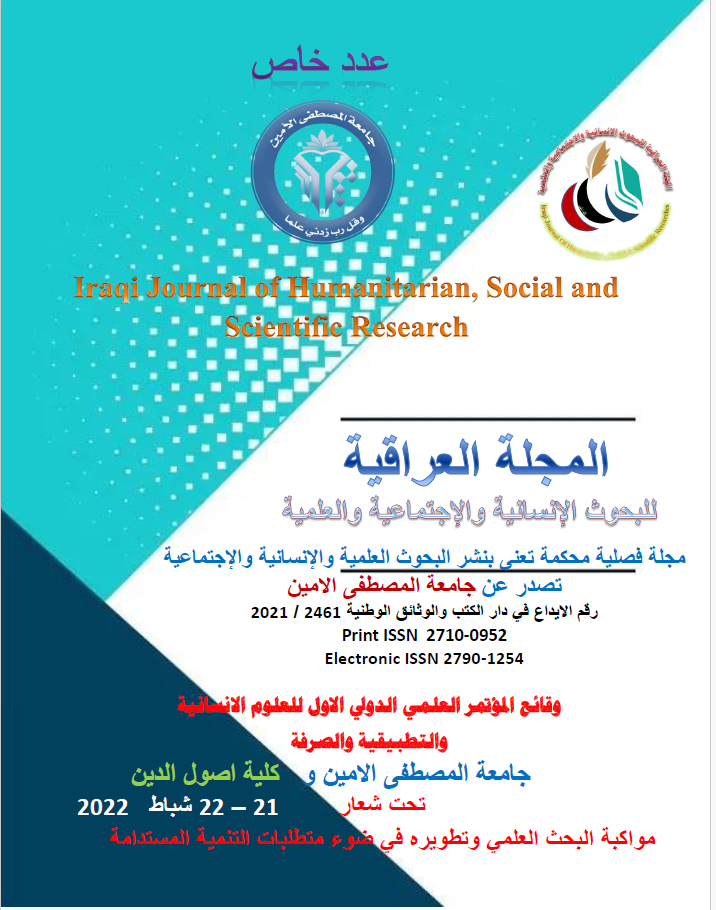Abstract
The Lean Manufacturing philosophy emerged as a result of a broader philosophy that characterized the Japanese management in its view and management of things and in all fields and areas. In the field of industrial engineering, they consider it the other side of the Toyota Production System or one of the phrases that can be used for the synonym of the phrase Toyota Production System.
The term lean is derived from reducing the use of resources and not wasting them in the sense of achieving high efficiency in their uses. Where the content of an agile system generally revolves around achieving high achievement while minimizing the use of time, warehousing, and labor, in other words, excluding all activities that do not add value to the customer through the product or service.
In this context, the (Toyota Company) experience is a pioneering model in the field of lean manufacturing, which it started in the early eighties of the last century, taking advantage of its ability to streamline the process and use the continuous improvement approach to reduce waste and losses, as well as employing the Just In Time production system, In providing the best customer service.
The term lean is derived from reducing the use of resources and not wasting them in the sense of achieving high efficiency in their uses. Where the content of an agile system generally revolves around achieving high achievement while minimizing the use of time, warehousing, and labor, in other words, excluding all activities that do not add value to the customer through the product or service.
In this context, the (Toyota Company) experience is a pioneering model in the field of lean manufacturing, which it started in the early eighties of the last century, taking advantage of its ability to streamline the process and use the continuous improvement approach to reduce waste and losses, as well as employing the Just In Time production system, In providing the best customer service.
Keywords
competitive policy
Lean manufacturing
prefab factory
Abstract
ظهرت فلسفة التصنيع الرشيق كنتيجة لفلسفة أوسع اتسمت بها الإدارة اليابانية في نظرتها وادارتها للأمور وفي كافة الحقول والمجالات , هذه الفلسفة تعرف بـ(فلسفة التحسين المستمر), فالتصنيع الرشيق لم يولد وينمو بعيدا عن ما يعرف بنظام تويوتا الإنتاجي , بل ان الكثير من المفكرين الإداريين والعاملين في مجال الهندسة الصناعية يعتبرونه الوجه الاخر لنظام تويوتا الإنتاجي او احد العبارات التي يمكن استخدامها لمرادف عبارة نظام تويوتا الإنتاجي.
إن مصطلح الرشيق (lean) مشتق من التقليل من استخدام الموارد وعدم التبذير فيها بمعنى تحقيق الكفاءة العالية في استخداماتها. حيث يدور محتوى النظام الرشيق بشكل عام حول تحقيق إنجاز عالي مع التقليل من استخدام الوقت، الخزين، العمل، بعبارة أخرى استبعاد كافة الأنشطة التي لا تضيف قيمة إلى الزبون من خلال المنتج أو الخدمة.
وفي هذا السياق تعد تجربة (شركة تويوتا) نموذج ريادي في مجال التصنيع الرشيق بدأت به في بداية الثمانيات من القرن الماضي مستفيدة من قدرته على انسيابية العملية واستخدام نهج التحسين المستمر في تقليل الهدر والضياعات، فضلاً عن توظيف نظام الإنتاج في الوقت المحدد Just In Time، في تقديم أفضل خدمة للزبائن.
إن مصطلح الرشيق (lean) مشتق من التقليل من استخدام الموارد وعدم التبذير فيها بمعنى تحقيق الكفاءة العالية في استخداماتها. حيث يدور محتوى النظام الرشيق بشكل عام حول تحقيق إنجاز عالي مع التقليل من استخدام الوقت، الخزين، العمل، بعبارة أخرى استبعاد كافة الأنشطة التي لا تضيف قيمة إلى الزبون من خلال المنتج أو الخدمة.
وفي هذا السياق تعد تجربة (شركة تويوتا) نموذج ريادي في مجال التصنيع الرشيق بدأت به في بداية الثمانيات من القرن الماضي مستفيدة من قدرته على انسيابية العملية واستخدام نهج التحسين المستمر في تقليل الهدر والضياعات، فضلاً عن توظيف نظام الإنتاج في الوقت المحدد Just In Time، في تقديم أفضل خدمة للزبائن.
Keywords
التصنيع الرشيق
السياسة التنافسية
معمل البناء الجاهز
